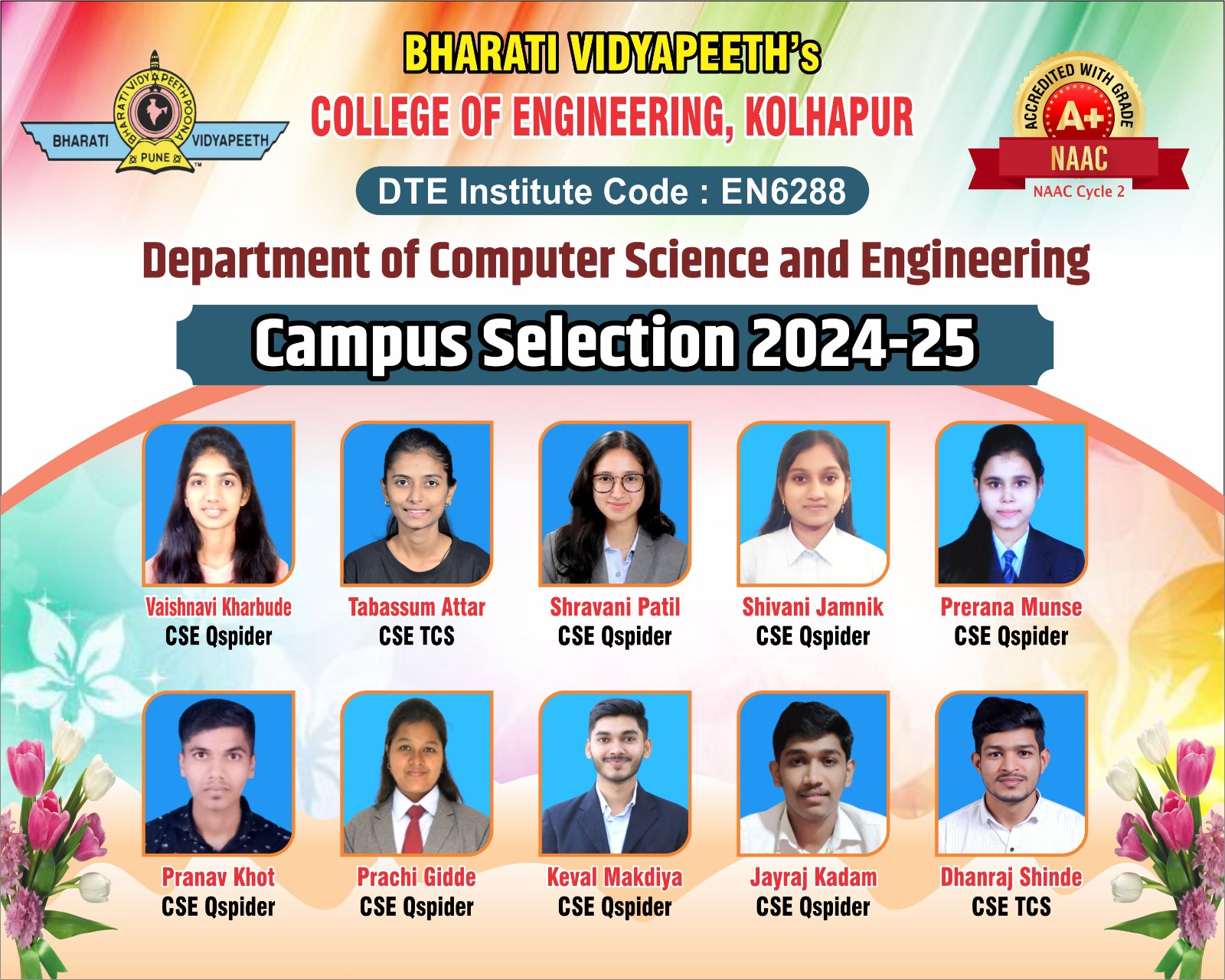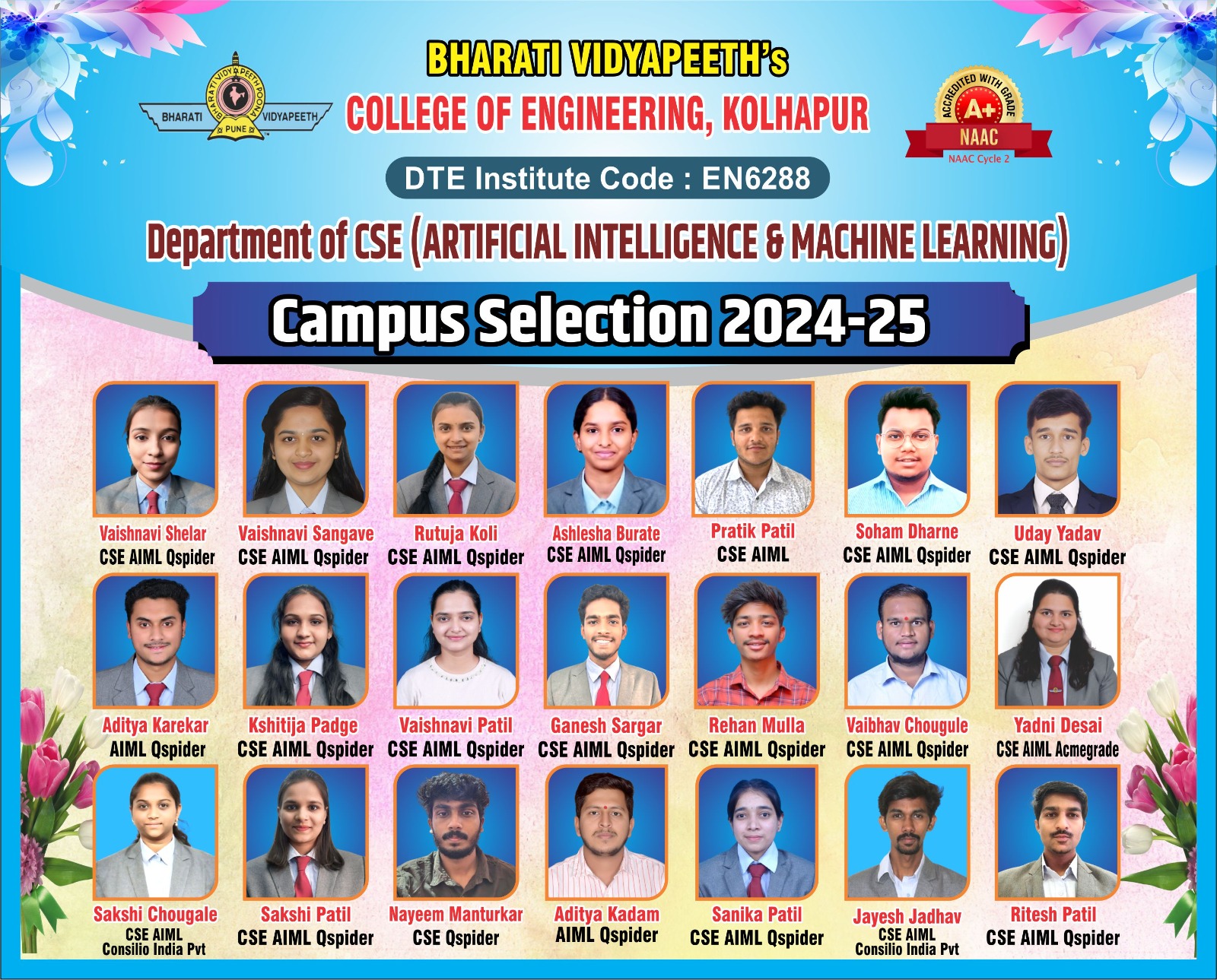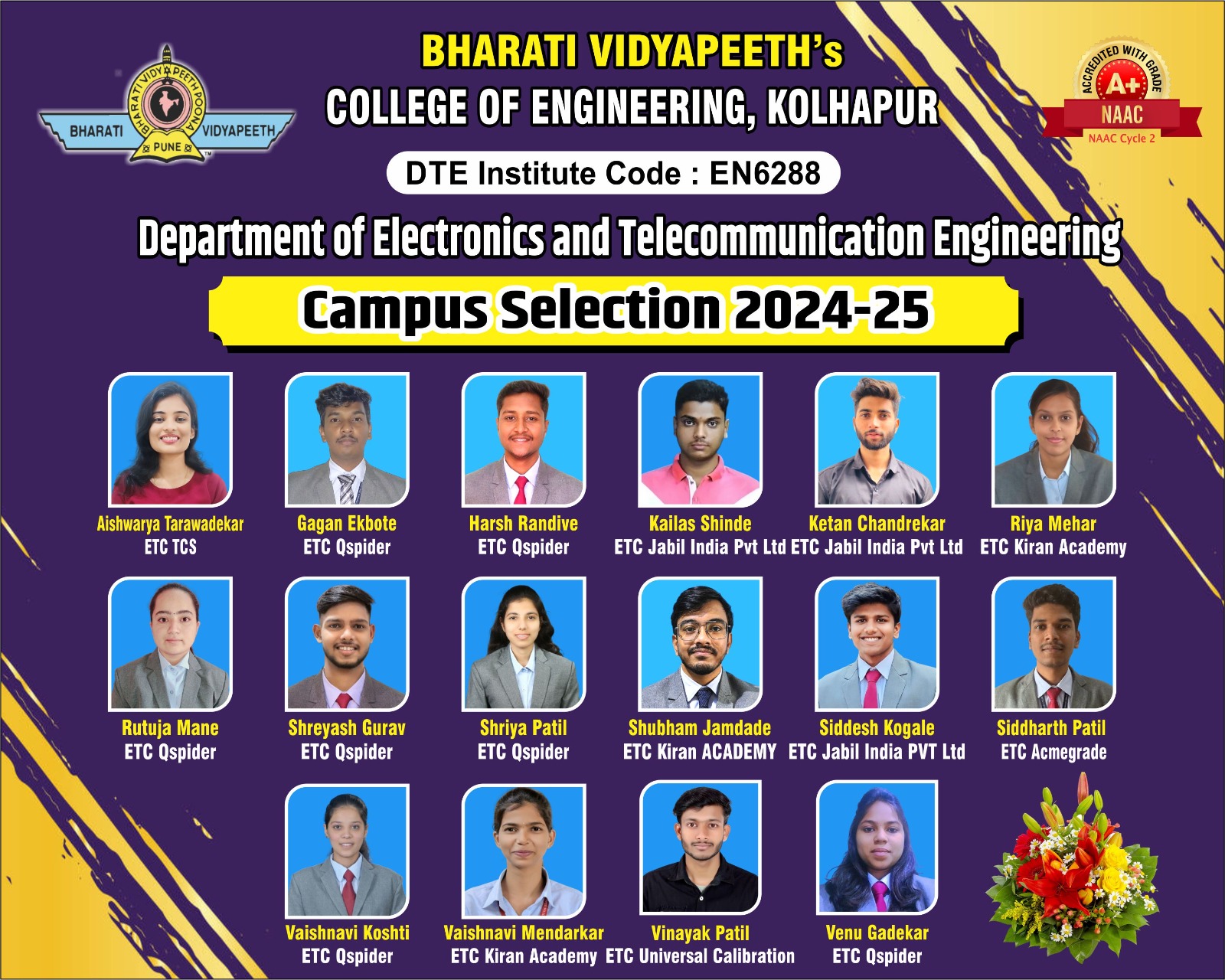Computer Science and Engineering
Home
History:Department of Computer Science and Engineering was started in year 2001. The department has well qualified, devoted and dynamic team of 12 teaching staff member. A vibrant teaching – learning ambiance is maintained in the department through seminars, industry institute interaction etc. The department focuses on developing future software professional who strive towards inculcating good academic skills along with industrial exposure. Vision:Enhancing lives by offering high quality education using cutting-edge technologies. Mission:
|
Program Educational Objectives (PEOs)
Program Educational Objectives (PEOs)
- PEO1: To provide students with core proficiency in Mathematical, Scientific and Basic Engineering fundamentals necessary to formulate, analyze and solve engineering problems and to prepare them for professional careers and advanced studies in the field of engineering
- PEO2: To provide the students thorough knowledge in core areas of computer science and related engineering, so as to analyze the requirements of software, design and synthesize data and technical concepts to create novel products and solutions for real life problems
- PEO3: To inculcate among students, high professionalism, ethical standards, effective oral and communication skills, good leadership qualities, diverse professional environments related engineering issues, global economy and emerging technologies
- PEO4: To explore innovative learning opportunities for application of knowledge to benefit society in promoting student awareness on lifelong learning
Program Outcomes (POs)
Program Outcomes (POs)
- Engineering knowledge: An ability to apply knowledge of mathematics, science and engineering fundamentals in the field of Computer Science to the solution of engineering problems
- Problem analysis: An ability to design experiments, identify, formulate, analyze & interpret engineering problems in the field of Computer Science
- Design & Development of Solutions: An ability to design solutions for engineering problems and design a system, component, or process to meet desired needs within realistic constraints such as economic, environmental, social, political, ethical, health and safety, manufacturability, and sustainability
- Investigation of Complex Problem: An ability to design software, performs experiments, analyzes and interprets the outcomes data to arrive at valid conclusions
- Modern tool usage: An ability to use the techniques, skills, and modern engineering tools and softwares necessary for engineering practice
- Engineer and society: The broad education necessary to understand the impact of engineering solutions in a global, economic, environmental, and societal context
- Environment& sustainability: An ability to understand the impact of engineering solutions in social and environmental contexts and demonstrate knowledge of and need for sustainable development
- Ethics: An ability to apply ethical principles and commit to professional ethics and responsibilities and norms of engineering practice
- Individual and Team Work: An ability to function effectively as an individual, and as a member or leader in diverse teams and in multi disciplinary settings
- Communication: An ability to communicate effectively about their domain in both verbal and written form
- Project Management and Finance: Demonstrate knowledge and understanding of engineering and management principles and apply these to one’s own work, as a member and leader in a team, to manage Projects and in multidisciplinary environments
- Life-long Learning: Recognize the need for and have the preparation and ability to engage in independent and life- long learning to survive in Company/Organization or independently
Programme Specific Outcomes (PSOs)
Programme Specific Outcomes (PSOs)
- Students should be able to understand the concepts and applications in the field of Computer Science & Engineering.
- Students should be able to use engineering practices, strategies and tactics for the development, operation and maintenance of softwares.
Infrastructure
Infrastructure
| S.No. | Name of classroom | Area in Sq.M. |
| 1 | Lecture Hall-01 | 80 |
| 2 | Lecture Hall-02 | 80 |
| 3 | Lecture Hall-03 | 65 |
| 4 | Tutorial Room | 80 |
| 5 | Department Office | 7 |
Laboratory
Laboratory
| SR. NO | NAME OF THE LAB | AMOUNT |
| 1 | LAB I – COMPUTER NETWORKS LABORATORY | 1260960 |
| 2 | LAB II – DATA STRUCTURES LABORATORY | 1182290 |
| 3 | LAB III – WEB TECHNOLOGY LABORATORY | 1312307 |
| 4 | LAB IV – SYSTEM PROGRAMMING LABORATORY | 1381053 |
| 5 | LAB V – INFORMATION SECURITY LABORATORY | 477990 |
| 6 | LAB VI –DATA BASE ENGINEERING LABORATORY | 3903770 |
| 7 | LAB VII – OPRATING SYSTEM LABORATORY | 848370 |
| 8 | LAB-VIII POST GRADUATION RESEARCH LABORATORY | 508161 |



 Free
Free

